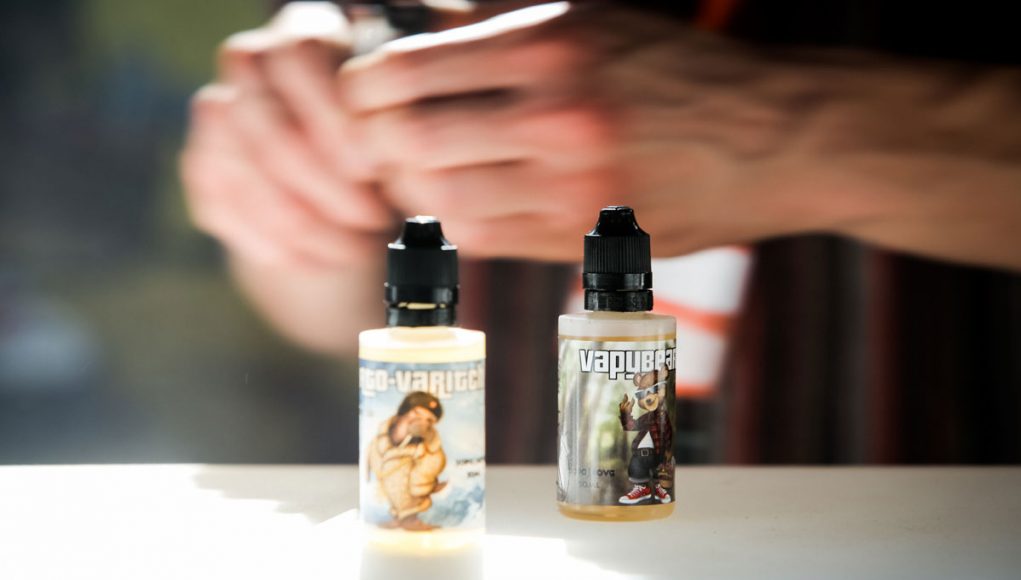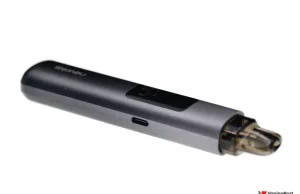It just so happens that the FDA is offering everyone the chance to voice their opinions about their proposed flavor ban. This is not because a federal agency hopes to hear the honest stories and genuine comments from everyday citizens throughout America. The 90 day period is simply a stipulation the FDA is required to follow by law.
Unless, of course, you think the FDA truly wants to hear what you have to say about this matter? It is not my place to pass judgment, though from nearly five years of dedicating my life to researching these controversial topics, rest assured, your voice does matter a great deal — however, it must be known that the FDA could care less about our explanations, experiences and feelings about flavors.
They have already heard what we have to say, a million times over. They know exactly how we feel about this issue. Furthermore, in the big picture, do our comments even matter? Probably not, but at the same time, we are vapers and we are strong. Most importantly, we refuse to go quietly.
Should we all participate by sending in comments? Yes, of course. Participate in any way you can, whether it be in surveys or personal comment requests. However, I have yet to see one website featuring any articles, blog posts or videos highlighting the most important factors of the commenting process.
Regardless, there is without a doubt, an area in this commenting process that we should be making ourselves more aware of.
Advocacy Duties in the Vape Community
So, why aren’t there a number of advocates, especially those with a strong social media presence focusing on informing vapers of acceptable talking points — specifically, in relation to providing any insight as to what exactly should NOT be said in their comments?
Many may think we all know exactly what to say. However, this is probably guaranteed to not be the case. Perhaps it is wise to ask more questions about how vapers plan to approach this “comment process.”
Will some people probably take this time to view this opportunity and turn it into a chance for clearly communicating how they feel in a respectful, honest and professional tone? Yes. All in all, I would like to think for the most part that’s what we would expect and likely see.
Then again, when asking such a question, it’s only reasonable to ask a similar question, inquiring, “Do all vapers understand what NOT to say?”
So, will some people probably take this opportunity and turn it into a chance for themselves to express their extreme discontent and untapped rage towards this government institution? It’s certainly a possibility — any logical person familiar with all the vape drama can not rule out this situation as a probable scenario.
Therefore, as dedicated vaping advocates, I believe it is an absolute responsibility of ours to carefully explain what vapers should and should NOT be saying when posting comments, during the legally required 90 day comment period.
Altogether, it’s up to advocates to communicate that message to other inexperienced vapers who are fairly new to the Vape Advocacy scene.
In hindsight, any type of irresponsible remarks, opinionated hyperbole, biased criticism, hateful words and disrespectful commentary could be quite damaging and embarrassing for the community, as well as the industry as a whole.
It is important, of course for everyone to be themselves and to not hesitate to participate. Be loud, be proud and of course, be yourself.
Strategic Challenge
It is vital to reflect on the possibility that perhaps in this instance, we are being challenged to prove our professionalism and whether we can be taken seriously as adults. We always claim this is an adult industry. Is this the FDA’s chance to publicly tempt us by a subliminal message of, “Prove it.”
Time and time again, the vape community has fallen into these traps set by the anti-vape establishment. Even though the 90 day comment period is a legal formality, we should not simply assume the opposition is not hoping to strategize around our own expressions of personal experiences.
There have been countless vapers and advocacy leaders already taking to the Internet in order to inform the community there voice needs to be heard. However I’ve yet to hear anyone explain in summary or in detail the best way to go about expressing themselves. Which should include things not to do.
Altogether, even if people do know what to say in their comments, they may not know what we would agree, as a community, to be considered as “inappropriate.” Furthermore it is not outrageous to suggest that prepping and coaching vapers on what they shouldn’t say in their comments, could become a beneficial strategy.
Overall, this is a difficult situation and while I have confidence in everyone I’ve ever spoken with in the industry and how their comments will be perfectly communicated there’s also millions of vapers that are our community members whom I’ve never met or spoken with who might require some guidance. This is not to say they are incompetent, however, perhaps some are slightly inexperienced when faced with such a responsibility.
Alternative Approaches
Then again, in retrospect, I fully support the Bill of Rights, which includes the First Ten Amendments to the U.S. Constitution. With the First Amendment consisting of the right to Free Speech, among many other rights. So, in reality, perhaps vapers should express themselves in an openly frustrated manner, as freely as they desire.
There is no rulebook or professional standards in this situation, so It might not hurt to vent all the pent-up angst and lingering disappointment. Perhaps expressed in a way that serves as the most honest representation of how you personally feel.
Just keep in mind, during this process, you do not only represent yourself and your own feelings, but you represent an entire community of many individuals just like you. Therefore, all things considered, we must ask ourselves, how do we want our collective voice to be heard?




![Recent Conference Urged Nations Worldwide to “Quit [Smoking] Like Sweden”](https://www.vapingpost.com/wp-content/uploads/2024/04/vape-conference-238x178.png)


![Recent Conference Urged Nations Worldwide to “Quit [Smoking] Like Sweden”](https://www.vapingpost.com/wp-content/uploads/2024/04/vape-conference-100x75.png)




